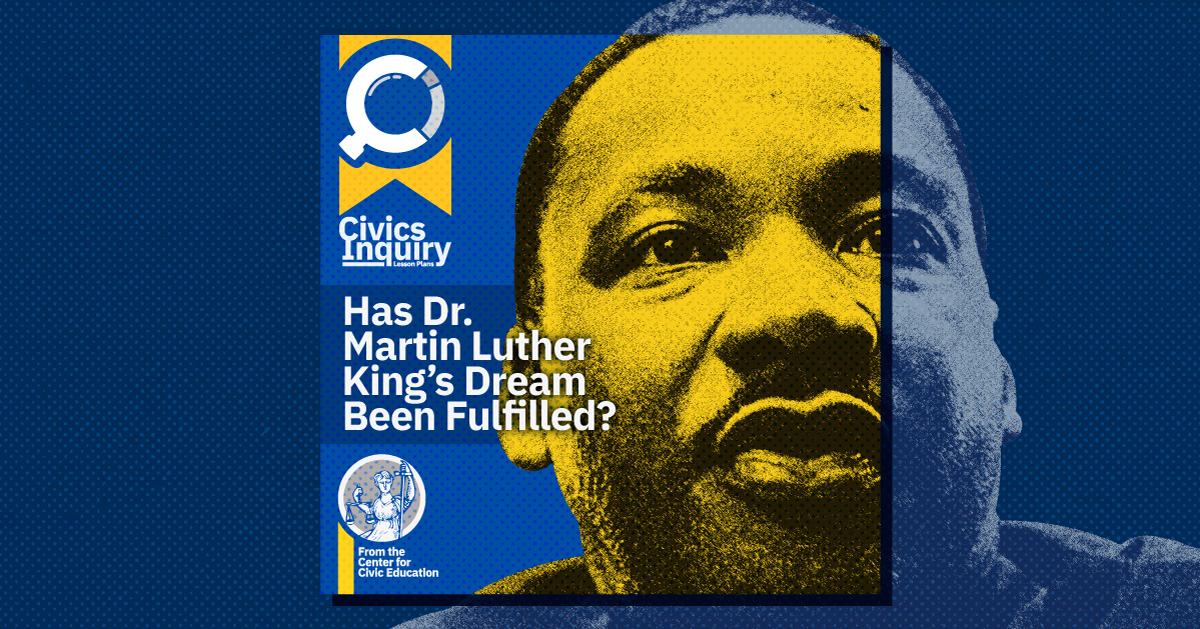
Has Dr. Martin Luther King's Legacy Been Fulfilled?
Lesson Overview
College, Career, and Civic Life (C3) Framework
- D2.His.13.3-5. Use information about a historical source, including the maker, date, place of origin, intended audience, and purpose, to judge the extent to which the source is useful for studying a particular topic.
D3.3.3-5. Identify evidence that draws information from multiple sources in response to compelling questions.
Theme 3: We the People
- HDQ: What distinctive challenges have accompanied race relations in the U.S. compared with other countries worldwide?
- Design Challenge 2: America’s Plural Yet Shared History
- CDQ: Are there specific moments of political and social change that constitute refoundings? Why or why not?
- Design Challenge 4: Civic Honesty, Reflective Patriotism
- CCSS.ELA-LITERACY.RI.4.1: Refer to details and examples in a text when explaining what the text says explicitly and when drawing inferences from the text.
- CCSS.ELA-LITERACY.RH.6-8.1: Cite specific textual evidence to support analysis of primary and secondary sources.
- Active learning
- Attentiveness to political matters
- Collaboration
- Critical thinking
- Incorporating evidence
- Listening
- Relationship skills
- Analyze Dr. King’s goals for the civil rights movement
- Identify Dr. King’s accomplishments and obstacles during his time as a civil rights leader
- Reflect on the impact Dr. King’s legacy has had on their own lives
- Defend their position on whether Dr. King’s dream has been fulfilled
- Students will demonstrate their understanding of Dr. King’s goals for the civil rights movement by analyzing his “I Have a Dream” speech.
- Students will identify accomplishments achieved and obstacles faced by Dr. King by evaluating specific events in Dr. King’s life.
- Students will reflect on the impact of Dr. King’s legacy on their own lives by creating a connections poster using hexagonal thinking strategies.
- Students will demonstrate their understanding of Dr. King’s dream by reflecting on its impact on their lives.
- Teachers may assess by using the Dr. King's Dream: Inquiry Assessment Rubric.
- Students will participate in self-reflection by completing the Inquiry Reflection Tool.






